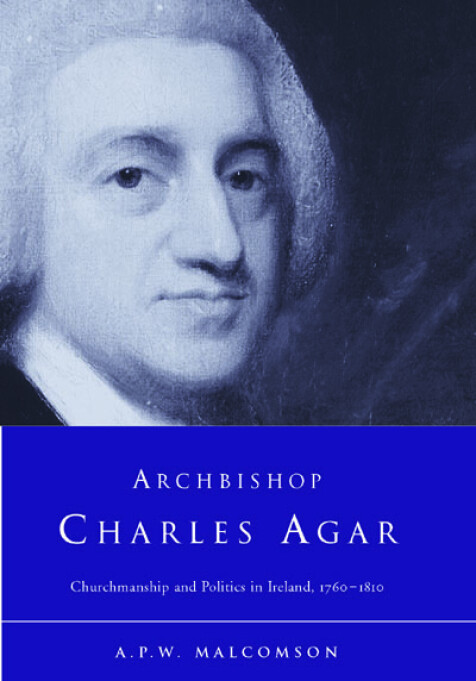Archbishop Charles Agar
Churchmanship and politics in Ireland, 1760–1810
Anthony Malcomson
Charles Agar, archbishop of Cashel, 1779–1801, and archbishop of Dublin 1801–9, has generally been regarded as a good example of what was worst and worldliest in the late 18th-century Church of Ireland. He has been represented as a political prelate, as having neglected his ecclesiastical responsibilities in the pursuit of power and personal advancement, and as having been avaricious to the point of misappropriating part of the see lands of Cashel. This study shows that these charges are false or exaggerated. It argues that the political influence that he derived from his family hindered as well as helped his ecclesiastical career. It demonstrates that, at critical moments, his political ability was of supreme importance to the Church, and that within it he was under-rewarded and under-promoted in relation to his services.
Finally, it suggests that, far from being the last of the bad old 18th-century churchmen, he was the archetype of 'the era of graceful reform' in the Church of Ireland. The book is not a straight biography: it is a study, through the medium of Agar, of churchmanship and politics in Ireland in the period c.1760–c.1810.
Anthony Malcomson was educated at Campbell College, Belfast, and Emmanuel College; Cambridge. He was awarded a PhD in history by QUB in 1970 and elected MRIA in 1987. Most of his working life was spent in the Public Record Office of Northern Ireland, of which he was director from 1988 until his retirement in 1998. He is the author of Nathaniel Clements: government and the governing elite in Ireland, 1725–75 (2005) and Nathaniel Clements (1705–77): arbiter of taste and amateur of architecture (2007).

